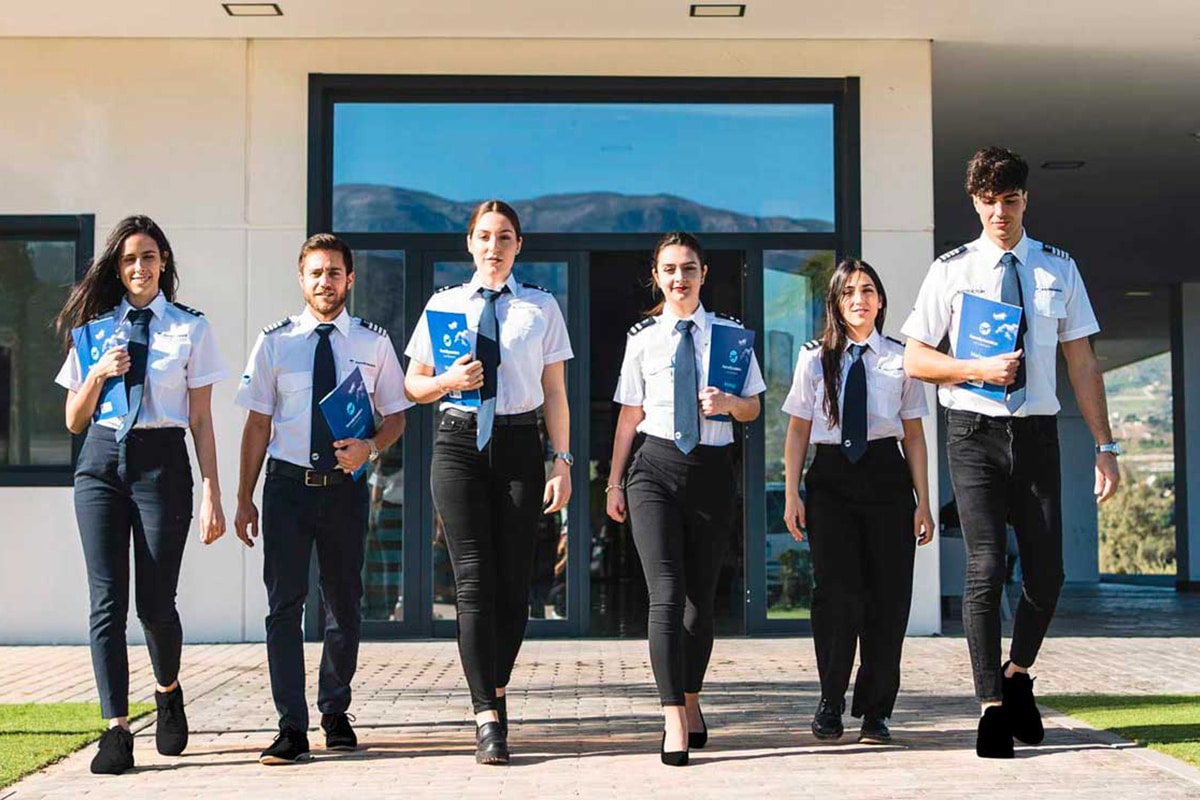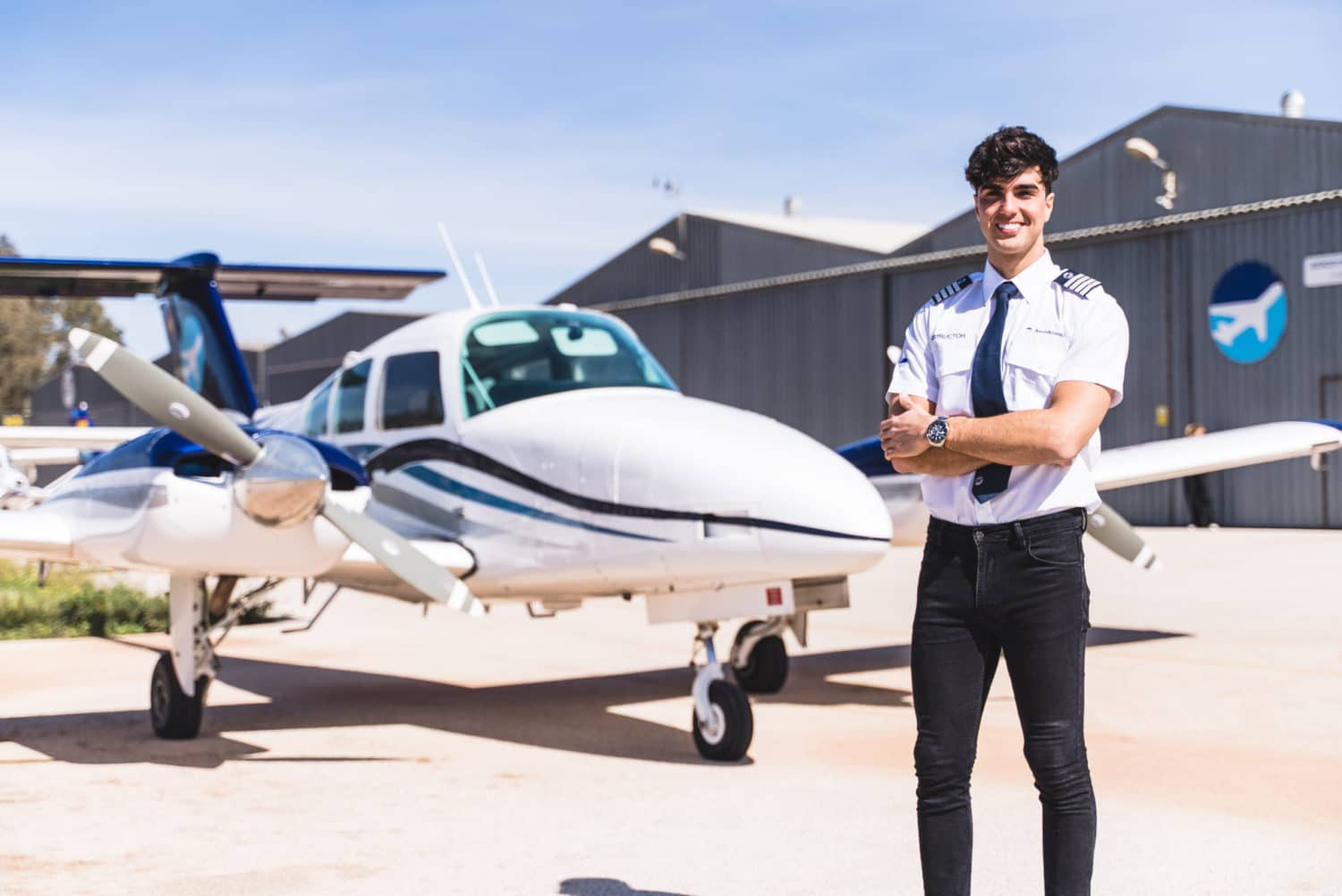
How to become an EASA Airline Commercial Pilot?
Aerodynamics Academy’s EASA Airline Transport Pilot License is designed for anyone with little or zero experience in the world of aviation and in just 24 months you will be able to obtain the official EASA frozen ATPL and become a part of a flight crew as a first officer in any airline. This Program has been developed with the highest training standards, based on our 25 years of experience training high-level professional pilots, both in theoretical knowledge and in-flight skills, and as a result, training pilots with a professional profile highly valued by European airlines.
Upon completion of the training, you will achieve the highest level of aircraft pilot certification: an Airline Transport Pilot License (fATPL) with the privileges of CPL – SE – ME – IR&PBN – A-UPRT – APS MCC.
The EASA Commercial Pilot Program includes all the necessary study material for written exams and practical exams.
The EASA Airline Transport Pilot Training (A) course can be completed in 18 to 24 months. All theoretical and flight training are delivered in the English language.
The theoretical element of the Commercial Pilot Course has a duration of 41 weeks, comprising a total of 1450 hours covering 14 subjects, all these, in parallel to flight training.
With a total flight training of 258 hours, the programme will take you from single-engine aircraft, single-engine complex, multi-engine aircraft, FNPT II Alsim 200/250, and Airbus 320 latest generation simulators.
You will be prepared not only for your first job in an airline but also trained to become a future captain.

COMMERCIAL PILOT COURSE COMPOSITION
ATPL Ground School
- Air law
- Communication
- Operating procedures
- Mass and balance
- Instrumentation
- Meteorology
- Aircraft general knowledge
- Flight planning
- Performance
- General navigation
- Radio navigation (PBN)
- Human performance & limitations
- Pinciples of flight
- Knowledge, Skills and Attitudes
Flight Training
- 111 hours single-engine aircraft, under visual conditions
- 42 hours advanced single-engine aircraft
- 40 hours FNPT II simulator
- 22 hours multi-engine aircraft
- 3 hours A-UPRT semi-acrobatic aircraft
- 43 hours Airbus A320 flight simulator
Airline Training
- Airline Pilot Standards Multi Crew Cooperation (APS MCC)
- CBT A320 Learning materials
- 35 Hours of ground lessons
- 40 Hours A320 Simulator
REQUIREMENTS
The requirements to start the course are:
- B2 level of English or equivalent
- High school diploma or above
- Advanced knowledge of maths and physics
- Being over 18 on the year you start the course
- Be a holder of a current EASA Medical Certificate Class 1

Why should I take my pilot course in Aerodynamics Academy?
All expenses are included
Our training programme includes all the study materials that the student will need for the theoretical part of the course, as well as the materials for the practical part, plus our school uniform, flight hours, fuel costs, and airports and exams (both written and practical) taxes. No hidden costs:
- IPad and electronic learning materials
- uniform
- flight training materials
- logbook/ VFR charts/ plotter, etc.
- all the written exam’s official taxes
- all the flight hours
- landing and navigation taxes
- fuel and landing expenses
- all practical aptitude tests
- examiner’s professional fees
Fleet and facilities
Aerodynamics Academy boasts unbeatable facilities, including a 62.000 m² campus next to the aerodrome’s airstrip, exclusively devoted to the training of aviation professionals.
We own an extensive fleet of aircraft, totalling 17 planes in the premises: C150, C172, C172 RG, PA28 and BE-76, equipped with FADEC SYSTEM, ASPEN GLASS COCKPIT AVIONICS, DIESEL ENGINES, to mention a few.
We also house ALSIM FNPT II and AIRBUS 320 FTD1 SIMULATORS. The latter was built with 100% real cabin hardware and with ORIGINAL A320 SOFTWARE.
EASA Examination Centre
Aerodynamics Academy is an official EASA examination centre. It is thanks to this that our students can complete their training and sit for their exams in our own premises, without having the need to commute.
In-house maintenance equipment
We own our maintenance equipment, which has been certified according to EASA PARTS 145 and 147, CAMO and CAMO PLUS. This means that our fleet is maintained in optimal conditions 24/7, and therefore that we are permanently ready to operate from Mondays to Sundays under high-performance standards.
The approval of part 145 of EASA is a certification at enterprise level that subscribes to the European Commission regulation standards in design, production, maintenance, and operations, regarding aircraft components.
Meteorology
Malaga has an average of 300 days of annual sunshine that warrant optimal weather conditions for flight training year-round. This allows us to expedite the course’s practical part, ensuring that our students complete the Integrated ATPL within the desired term.
World-renown
Aerodynamics Academy has been certified by AESA (Spanish Aviation Safety Agency) under the centre number E-ATO226, and it is compliant with EASA (European Aviation Safety Agency) regulations, which allows us to work through virtually all countries of Europe.
Over our 25 years of experience, Aerodynamics Academy has become a company of international prestige and a reference to both national and international airlines that choose us to train their pilots, mechanics, and crew members.
Within this period, we have also trained thousands of pilots that are currently active not only in Europe, but around the world.
Other Pilot Programmes
Give us your contact details and our Training Advisor will help you clarify any queries you may have.

